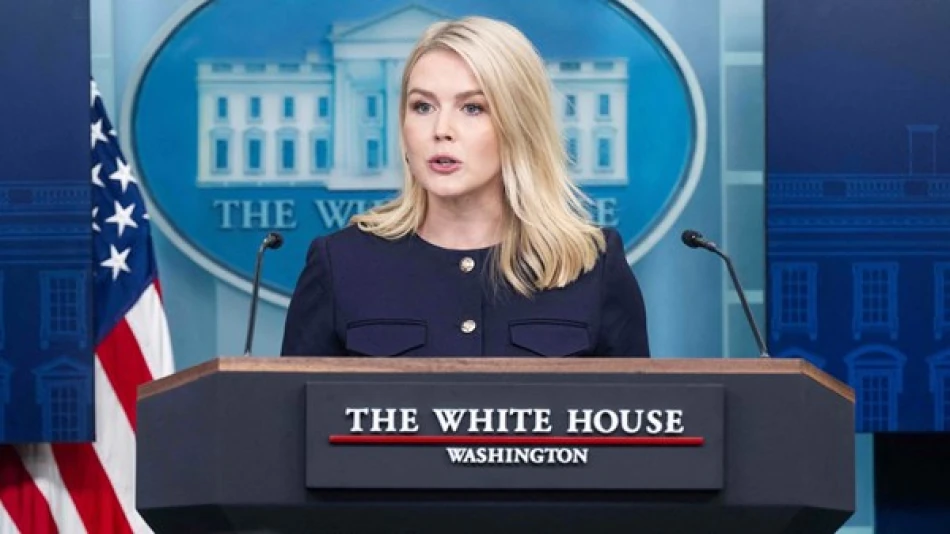
White House Unveils Details on TikTok Deal: Exploring the Evolving Landscape of Tech Acquisitions
TikTok's American Transformation: Oracle Set to Control Data as U.S. Seizes Strategic Asset
The White House has unveiled details of a landmark deal that would transfer TikTok's U.S. operations from Chinese parent company ByteDance to American control, with tech giant Oracle positioned to manage the platform's data infrastructure and algorithms. The arrangement, which could be finalized within days, represents one of the most significant forced technology transfers in modern history and signals America's aggressive stance on digital sovereignty.
American Board Control: Six of Seven Seats
White House Press Secretary Caroline Leavitt revealed that the proposed deal would establish a seven-member board to oversee TikTok's U.S. operations, with six seats controlled by Americans. This structure ensures decisive American influence over the platform's strategic decisions while maintaining a token international presence.
"There will be seven seats on the board that controls the app in the United States, six of which will be American," Leavitt told Fox News, emphasizing the deal's imminent completion.
Oracle's Data Dominance Strategy
Oracle, the enterprise software giant controlled by billionaire Larry Ellison, emerges as the key technological guardian in this arrangement. The company will assume responsibility for TikTok's data management and privacy controls, while also overseeing the platform's powerful recommendation algorithms that have made it a global phenomenon.
This mirrors similar "trusted cloud" arrangements seen in other jurisdictions, but goes further by placing algorithm control under American oversight. Unlike partial solutions implemented in countries like the UK or India, the U.S. approach seeks comprehensive technological sovereignty over the platform.
Why Oracle Makes Strategic Sense
Oracle's selection reflects both technical capability and political alignment. Ellison, one of Trump's prominent Silicon Valley supporters, brings enterprise-grade security infrastructure and government contracting experience. The company already manages sensitive data for numerous federal agencies, making it a natural choice for handling TikTok's vast trove of user information.
Trump-Xi Diplomatic Chess Game
The deal's progression hinges on delicate diplomacy between Washington and Beijing. Trump claimed Chinese President Xi Jinping agreed to the arrangement during their Friday phone call, though China has not confirmed any agreement. This diplomatic dance reflects broader U.S.-China tensions over technology transfer and digital influence.
Trump's comment that "we will impose very strict oversight" signals the administration's intent to use TikTok as a template for future technology acquisitions from Chinese companies.
Market and Investor Implications
The forced sale establishes a precedent that could reshape how foreign technology companies operate in the U.S. market. ByteDance's estimated $50-80 billion valuation for TikTok's U.S. operations represents one of the largest involuntary asset transfers in corporate history.
For investors, the deal demonstrates that geopolitical risks can override traditional market mechanisms. Companies with significant Chinese ownership may face similar pressures, particularly in sectors deemed strategically sensitive.
Global Regulatory Ripple Effects
The TikTok restructuring could inspire similar moves by allied nations. The European Union, Australia, and Canada have all expressed concerns about Chinese-controlled social media platforms, and may adopt comparable frameworks requiring local data control and algorithmic transparency.
Beyond TikTok: Digital Sovereignty Era
This transaction represents more than a single app's ownership change—it signals America's commitment to digital sovereignty in an era of technological competition. By securing control over TikTok's algorithms and data infrastructure, the U.S. gains insight into one of the world's most sophisticated content recommendation systems while eliminating potential Chinese surveillance capabilities.
The deal's completion would mark a decisive victory for advocates of technology nationalism, demonstrating that even the most popular consumer applications cannot escape geopolitical realities when national security concerns arise.
Most Viewed News

 Layla Al Mansoori
Layla Al Mansoori






